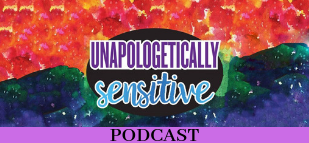Real Talk on Health Challenges: Speaking FOR Your Parts vs. Speaking FROM Your Parts
Jen and I talk about the difference between complaining, speaking honestly about what’s going on, and the other person’s capacity to sit with things that they may feel they need to fix or change. Many of you have been told that you complain too much or that you’re too negative. Neurodivergent brains tend to report the truth, and we are very discerning about what we like and what we don’t like. This can be perceived as negativity, complaining or being depressing to be around. What if it really wasn’t about you?
CO-HOST
Jen Perry, MSEd, MA, LPC
HIGHLIGHTS
Summary
In this conversation, Patricia and Jen discuss the difference between complaining and sharing honestly about personal struggles. They explore the challenges of navigating conversations around difficult topics and the importance of holding space for each other’s experiences. They also delve into the healing process and the acceptance of trauma, emphasizing the need to honor and validate our own emotions. The conversation highlights the significance of checking intentions and capacity in communication, as well as the transformative power of being in relationship with our experiences. In this conversation, Jen and Patricia discuss the importance of speaking from a part versus speaking for a part. They explore the concept of unprocessed trauma and how it can affect communication. They also discuss the significance of acknowledging and balancing pain, as well as differentiating between acting from a part and speaking for a part. The conversation highlights the role of chaperoning the part and the importance of validating and witnessing pain. Finally, they find humor in the uncertainty of their podcast episodes.
Takeaways
Differentiate between complaining and sharing honestly about personal struggles.
Hold space for each other’s experiences and validate emotions.
Accept and heal from trauma by being in relationship with our experiences.
Check intentions and capacity in communication to ensure effective and compassionate conversations. It is important to speak from a part rather than speaking for a part.
Unprocessed trauma can impact communication and lead to a desire for others to intuitively understand and fix our needs.
Acknowledging and balancing pain can help in managing distressing emotions.
Differentiating between acting from a part and speaking for a part can provide clarity in communication.
Chaperoning the part involves bringing in other perspectives and validating the pain experienced.
Validating and witnessing pain is crucial in processing unprocessed trauma.
Finding humor in uncertainty can help alleviate pressure and create a lighter atmosphere.
Chapters (adjust for addition of introduction)
00:00 Introduction and Personal Updates
02:34 Differentiating Between Complaining and Sharing
08:15 Healing and Accepting Trauma
13:25 The Healing Process and Holding Space
16:53 The Energy of Holding Space and Acceptance
23:39 Checking Intentions and Capacity in Communication
27:19 Navigating Difficult Conversations and Boundaries
32:24 Processing Trauma and Holding Space for Emotions
36:29 The Complexity of Communication and Trauma Responses
38:55 Being in Relationship with Our Experiences and Healing
39:52 Speaking from a Part vs. Speaking for a Part
40:38 Identifying Unprocessed Trauma
41:33 Acknowledging and Balancing Pain
42:14 Differentiating Acting from Speaking
42:53 Chaperoning the Part
43:22 Validating and Witnessing Pain
43:42 Finding Humor in Uncertainty
PODCAST HOST
Patricia was a Licensed Clinical Social Worker for over 17 years, but she is now exclusively providing coaching. She knows what it’s like to feel like an outcast, misfit, and truthteller. Learning about the trait of being a Highly Sensitive Person (HSP), then learning she is AuDHD with a PDA profile and RSD, helped Patricia rewrite her history with a deeper understanding, appreciation, and a sense of self-compassion. She created the podcast Unapologetically Sensitive to help other neurodivergent folks know that they aren’t alone, and that having a brain that is wired differently comes with amazing gifts, and some challenges. Patricia works online globally working individually with people, and she teaches Online Courses for neurodivergent folks that focus on understanding what it means to be a sensitive neurodivergent. Topics covered include: self-care, self-compassion, boundaries, perfectionism, mindfulness, communication, and creating a lifestyle that honors you
CO-HOST BIO
Jen Perry, MSEd, MA, LPC has been a psychotherapist for 20 years. She specializes in helping Highly Sensitive People thrive in love, work, and parenting Highly Sensitive Children. Jen is passionate about using mindfulness and compassion-based approaches to ameliorate human suffering.
LINKS
Jen’s Links
Email: Jen@heartfulnessconsulting.com
Jen’s website: https://heartfulnessconsulting.com/
Patricia’s Links
HSP Online Course–https://unapologeticallysensitive.com/hsp-online-groups/
Receive the top 10 most downloaded episodes of the podcast– https://www.subscribepage.com/e6z6e6
Sign up for the Newsletter– https://www.subscribepage.com/y0l7d4
To write a review in itunes:
- click on this link https://itunes.apple.com/us/podcast/unapologetically-sensitive/id1440433481?mt=2
- select “listen on Apple Podcasts”
- chose “open in itunes”
- choose “ratings and reviews”
- click to rate the number of starts
- click “write a review”
Website–www.unapologeticallysensitive.com
Facebook– https://www.facebook.com/Unapologetically-Sensitive-2296688923985657/
Closed/Private Facebook group Unapologetically Sensitive– https://www.facebook.com/groups/2099705880047619/
Instagram– https://www.instagram.com/unapologeticallysensitive/
Youtube– https://www.youtube.com/channel/UCOE6fodj7RBdO3Iw0NrAllg/videos?view_as=subscriber
Tik Tok–https://www.tiktok.com/@unapologeticallysensitiv
e-mail– unapologeticallysensitive@gmail.com
Show hashtag–#unapologeticallysensitive
Music– Gravel Dance by Andy Robinson www.andyrobinson.com

